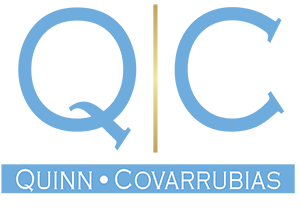George E. Murphy, of counsel with Quinn Covarrubias, filed a Petition for Review in the California Supreme Court seeking a reversal of the Court of Appeal’s published decision against Family Health Centers of San Diego (Family Health), which is a Federally Qualified Health Center (FQHC). The purpose of FQHCs is to serve communities that may have financial disadvantages, language barriers, geographic barriers, or other specific needs. They serve high-need areas determined by the federal government that might be facing high levels of poverty, negative health outcomes, and limited access to health care services. Federal and State programs exist to make medical benefits available for these individuals. However, these individuals are often unaware of what the programs are, how to apply for benefits, and where to go for needed medical help. These are individuals who are typically unreachable through common channels of communication such as television, radio, streaming services, and social media. To reach them and inform them of what medical care is available, and how and where to obtain it, a more direct and personal approach is essential. This involves caring workers engaging these individuals in their communities, on the streets, and at facilities that at-risk individuals are known to frequent—an activity known as “outreach.”
While acknowledging the importance of outreach, the State Department of Health Care Services which oversees FQHCs in California refused to permit reimbursement for the costs of outreach, invoking published guidelines that make some forms of advertising to the general public non-reimbursable. Family Health challenged that position in a losing effort at the administrative level, in the Superior Court and in the Third District Court of Appeal. However, the Supreme Court of California granted review and ultimately ruled in favor of Family Health, reversing the decision of the Third District Court of Appeal. The question presented to the Supreme Court was:
“When a [FQHC] incurs costs to have an employee talk with homeless individuals–one or a few at a time–about how she/they may obtain health services, or assist in making appointments with a provider, or enroll an indigent person in Medi-Cal where appropriate, do such activities constitute ‘advertising to the general public’ under pertinent federal guidelines, to make the costs of those activities not allowable for reimbursement under federal and state law?”
After review was granted and the parties submitted their briefs on the merits, the Supreme Court entertained oral argument, which was presented by Mr. Murphy on behalf of Family Health. Subsequently, the Court issued its opinion on July 24, 2023, in favor of the firm’s client, holding that under the federal Medicaid statute and Public Health Service Act, reimbursement for outreach and education costs should not have been denied to a FQHC like Family Health. No provision of the guidelines relied on by the Department could reasonably be read to mean that costs for outreach are categorically non-reimbursable merely because outreach increases patient access to, and therefore utilization of, the basic health services a FQHC has agreed to provide, at low or no cost, to members of underserved communities. The California Supreme Court’s decision in favor of the firm’s client was unanimous. Now, FQHCs throughout California can obtain reimbursement for their efforts to inform hundreds of thousands of at-risk members of society about essential medical care available to them.




